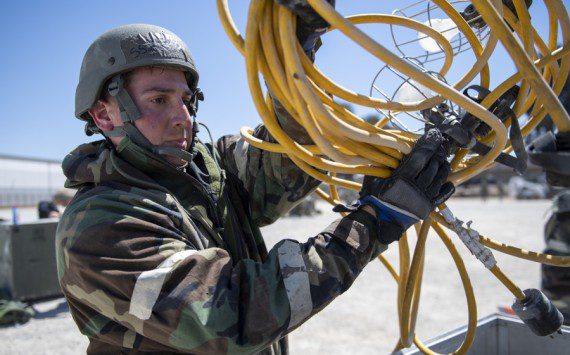As the Department of Veterans Affairs works to improve veterans’ access to health care, its telehealth services play an integral role in that process, said Dr. David J. Shulkin, VA’s Under Secretary for Health.
Shulkin spoke May 16 to members of the American Telemedicine Association attending the group’s 2016 conference in Minneapolis, where he also announced the establishment of five VA Mental Health Telehealth Clinical Resource Centers to provide enhanced mental health access and services to Veterans in remote locations.
The VA is recognized as a world leader in the development of telehealth services that are now mission critical to the future direction of VA care to veterans.
VA uses health informatics, disease management, care and case management, and telehealth technologies to facilitate access to care and improve the health of veterans. VA currently services more than 677,000 Veterans through telehealth; that amounts to approximately 12 percent of the 5.6 million veterans who receive healthcare from the VA.
VA’s Mental Health Telemedicine Clinical Resource Centers will provide veterans, particularly those living in rural areas, with rapid access to mental health services where local barriers exist. This expanded effort will help close the gap in access to mental health care, in particular, in those traditionally underserved communities.
“We are in the midst of the largest transformation in the history of VA with MyVA, which means we are reorienting what we do around the needs of our Veterans and providing care when, how and where they want to receive that care,” said Shulkin. “These mental health telehealth resource centers will provide our Veterans in underserved areas the expert mental health providers they may not otherwise be able to obtain locally. We know that we are doing more in telehealth than any other healthcare system and connecting mental health providers to areas hard to recruit and retain.”
The Mental Health Telehealth Clinical Resource Centers will be located in Charleston, S.C.; Salt Lake City, Utah; Pittsburgh, Penn.; and a consortium of facilities in Boise, Idaho; Seattle, Wash.;, and Portland, Ore. The fifth facility, already operational in West Haven, Conn., is a specialty hub focused on the most severe and complex mental health issues, such as chronic depression and bipolar disorder . The others are expected to be available in the summer, with the priority given to VA medical facilities in urgent need of additional mental health providers.
More information about VA’s Telemental health service may be found by visiting http://www.telehealth.va.gov/real-time/.











